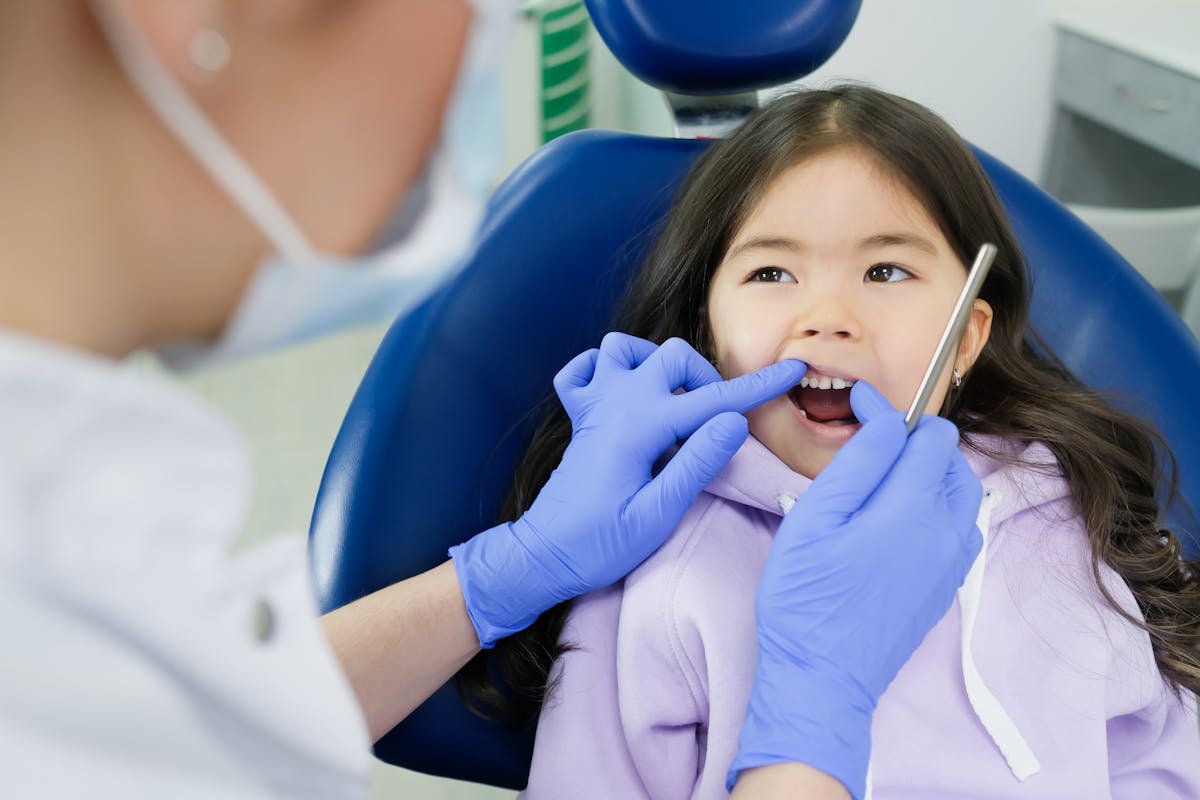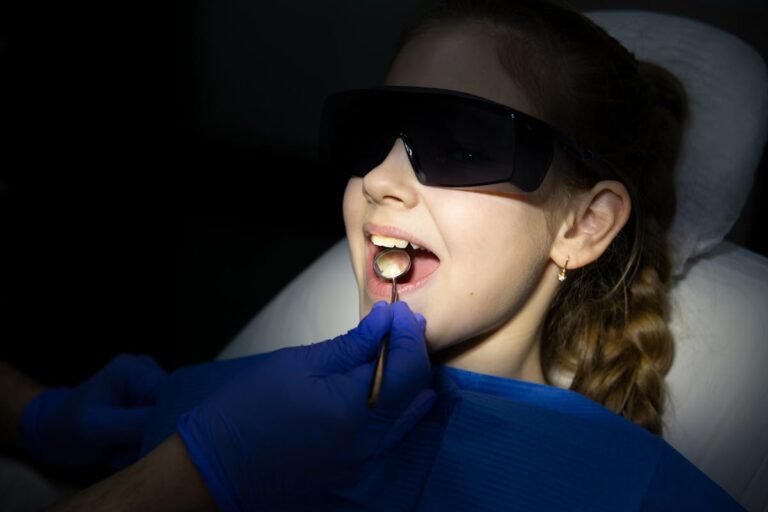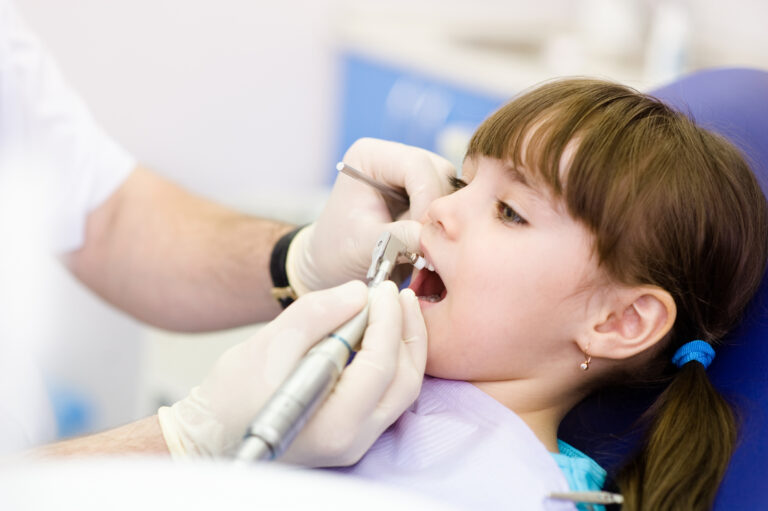Pediatric cosmetic dentistry is a crucial aspect of modern dental care, focusing on improving both the aesthetics and functionality of a child’s smile. By addressing issues like misaligned teeth and discoloration, these procedures enhance oral health and build confidence. A child’s smile is often their first impression, and feeling good about it can encourage positive social interactions. For parents seeking ways to support their child’s self-esteem and dental well-being, exploring these options is essential.
Understanding Pediatric Cosmetic Dentistry
Pediatric cosmetic dentistry, although a specialized field, is essential for addressing the aesthetic dental needs of children in a manner that promotes both confidence and oral health. This discipline focuses on understanding the unique pediatric needs that arise as children develop their teeth and smiles. Expert practitioners are trained to evaluate dental motivations that may include correcting discoloration, repairing chipped teeth, or aligning teeth for a more harmonious appearance. By addressing these issues early, pediatric dentists aim to prevent potential oral health challenges while ensuring a child’s self-esteem is nurtured. The procedures are carefully tailored to be minimally invasive, safe, and effective, fostering a positive dental experience. This approach not only enhances the physical attributes of a young smile but also supports a child’s overall well-being.
The Impact of Dental Aesthetics on Child Development
While dental aesthetics may seem a minor consideration in child development, its influence is profound and multifaceted. The appearance of a child’s teeth can markedly impact their social development. A child with an aesthetically pleasing smile often feels more confident in social interactions, fostering positive peer relationships. This confidence is essential in developing emotional resilience, as children navigate various social settings. Aesthetic dental alignment can also prevent teasing or bullying, which can otherwise hinder emotional growth and self-esteem. In addition, a child who feels comfortable with their dental appearance is more likely to engage openly in school activities, further nurturing social skills and resilience. Consequently, attention to dental aesthetics supports a child’s overall developmental trajectory, enhancing both their social and emotional well-being.
Common Dental Imperfections in Children
Many children experience a range of dental imperfections that can impact both their oral health and self-esteem. Tooth discoloration may arise from various factors, including medication or dietary habits, leading to a lack of confidence in their smile. Misaligned teeth and dental gaps often result from genetics or developmental changes, affecting both aesthetics and function. Gummy smiles can be a source of self-consciousness and might indicate underlying dental issues. Chipped teeth, sometimes caused by accidents, not only affect appearance but can also pose risks to oral health. Overcrowded teeth and bite issues, such as underbites or overbites, can complicate effective oral hygiene, potentially leading to more severe problems. Missing teeth, whether congenital or due to injury, can disrupt speech and chewing, requiring timely attention.
How Cosmetic Dentistry Boosts Self-Esteem
Cosmetic dentistry plays an essential role in addressing dental imperfections in children, such as misaligned teeth or discoloration, which can otherwise impact their self-confidence. By enhancing a child’s smile, these procedures promote a positive self-image, encouraging children to express themselves more openly and confidently. Consequently, this boost in self-esteem can lead to improved social interactions and overall well-being as they grow.
Addressing Dental Imperfections
For children dealing with dental imperfections, the impact on self-esteem can be profound and far-reaching. Addressing these concerns through pediatric cosmetic dentistry can be transformative. Expert practitioners offer a range of treatment options tailored to each child’s unique needs, including bonding, veneers, and orthodontics. These options not only improve aesthetics but also enhance oral health, contributing to a positive self-image.
While dental anxiety is common, dentists specializing in pediatric care employ techniques to guarantee a comfortable experience. By fostering a reassuring environment, they help children feel at ease during procedures. Early intervention in addressing dental imperfections can prevent long-term emotional and psychological impacts, ultimately boosting a child’s confidence and encouraging healthy oral hygiene habits for the future.
Encouraging Positive Self-Image
Confidence can be profoundly impacted by the appearance of one’s smile, especially in children. Pediatric cosmetic dentistry plays an essential role in self image development by addressing dental imperfections that may hinder a child’s confidence. When children feel good about their smile, they are more likely to engage in social interactions and participate in activities without hesitation. This positive reinforcement of self-esteem is vital during formative years, as it lays the foundation for future social and emotional well-being. Expertly executed cosmetic dental procedures can correct issues such as misalignment or discoloration, which might otherwise lead to self-consciousness. By fostering a positive self-image, pediatric cosmetic dentistry helps children cultivate a sense of pride and confidence in their appearance, empowering them for life.
Available Procedures in Pediatric Cosmetic Dentistry
Pediatric cosmetic dentistry offers various procedures designed to address the unique needs of children while promoting healthy, confident smiles. Common treatments include tooth-colored fillings, dental bonding, and gentle whitening techniques, all tailored to enhance both function and aesthetics. Early intervention in cosmetic dentistry not only improves oral health but also boosts self-esteem, setting the foundation for a lifetime of positive dental experiences.
Common Pediatric Procedures
Bright smiles and healthy teeth are vital components of a child’s overall well-being, and pediatric cosmetic dentistry offers a range of procedures to enhance both. Tooth bonding can repair chipped or discolored teeth, while dental crowns restore structure to damaged teeth. Orthodontic treatments, such as braces, realign teeth for improved function and aesthetics. Teeth whitening is a gentle option to brighten young smiles. Space maintainers are essential for guiding proper jaw growth when a tooth is lost prematurely. Dental veneers offer a solution for correcting irregularly shaped teeth. Additionally, fluoride treatments and sealant applications provide protective measures against tooth decay. These procedures guarantee children develop strong, healthy teeth, boosting their confidence and promoting lifelong oral health.

Benefits of Early Intervention
Early intervention in pediatric cosmetic dentistry can considerably impact a child’s oral health and self-esteem. By addressing dental issues at a young age, professionals can implement preventive measures to curb potential problems before they escalate. This proactive approach not only promotes healthier teeth but also fosters a positive self-image in children. Procedures such as sealants, enamel shaping, and minor orthodontics can rectify issues early, ensuring a foundation of strong oral health. Early intervention also allows for the correction of discoloration or developmental irregularities, which are essential for children who may feel self-conscious about their smiles. Ultimately, these measures contribute to a lifetime of confident, healthy smiles, underscoring the importance of timely and appropriate dental care in a child’s formative years.
The Connection Between Oral Health and Confidence
Confidence is an essential part of a child’s development, and a healthy smile can play a notable role in fostering it. Proper oral hygiene is vital not only for maintaining a child’s physical health but also for their emotional well-being. When children maintain good oral health, they are more likely to feel confident in social settings, reducing anxiety about their appearance. A well-cared-for smile can decrease the risk of negative peer interactions and enhance self-esteem. Additionally, children who take pride in their dental health often develop positive habits that carry into adulthood. Pediatric cosmetic dentistry can address issues like misaligned teeth or discoloration, ensuring children feel proud of their smiles. Ultimately, promoting oral health contributes considerably to a child’s confidence and overall emotional stability.
Criteria for Choosing a Pediatric Cosmetic Dentist
When seeking the right pediatric cosmetic dentist, how can parents guarantee they are making the best choice for their child? Ensuring a dentist has appropriate credentials verification is vital. Parents should confirm that the dentist has specialized training in pediatric dentistry and cosmetic procedures. This can be verified through relevant certifications and affiliations with professional dental organizations. Moreover, patient testimonials offer valuable insights into the experiences of other families. Reading reviews can provide reassurance about the dentist’s ability to create a comfortable environment for children while delivering quality cosmetic treatments. Additionally, observing the dentist’s approach to child-focused care is essential. A professional who emphasizes gentle techniques and effective communication can greatly contribute to a child’s confidence and oral health.
Preparing Your Child for Cosmetic Dental Procedures
Having established the importance of selecting a qualified pediatric cosmetic dentist, attention should now be directed towards effectively preparing a child for upcoming cosmetic dental procedures. Engaging in role playing scenarios with a trusted provider of pediatric cosmetic dentistry in Voorhees can be invaluable, as it familiarizes the child with the process in a playful, non-threatening manner. This technique allows children to express concerns, ask questions, and visualize the procedure, reducing anxiety. Moreover, incorporating positive reinforcement is essential. Praising the child for their bravery and cooperation can greatly boost their confidence. Offering small rewards or verbal encouragement after each step reinforces positive behavior and builds a supportive environment. These strategies not only ease the child’s apprehension but also foster a sense of trust and comfort during the actual dental visit.
Long-Term Benefits of Early Cosmetic Dental Care
Early cosmetic dental care offers numerous long-term benefits that can markedly impact a child’s oral health and self-esteem. By addressing dental issues at a young age, preventive care can reduce the risk of more complex problems later in life. Children who receive early interventions such as alignment corrections or enamel repairs often experience improved oral function and aesthetics. The long-term effects of these treatments extend beyond physical health; they foster confidence and encourage positive self-image. As children grow, they are likely to maintain healthier oral hygiene habits, decreasing the likelihood of cavities or periodontal disease. Proactively managing oral health through early cosmetic procedures consequently sets a foundation for lifelong dental wellness, emphasizing the importance of timely preventive care.
Frequently Asked Questions
Are Pediatric Cosmetic Dental Procedures Covered by Insurance?
Insurance coverage for pediatric cosmetic dental procedures varies. Some treatment options may be partially covered if deemed necessary for oral health. Parents should consult their insurance provider and dentist to understand specific coverage and potential out-of-pocket costs.
What Age Is Appropriate for a Child to Start Cosmetic Dental Treatments?
Determining the appropriate age for cosmetic dental treatments involves age considerations and early intervention. Experts recommend consulting a pediatric dentist, typically considering treatments around age seven, when permanent teeth emerge, ensuring safe and effective outcomes for children’s dental health.
How Do I Explain Cosmetic Dental Procedures to My Child?
Parents can explain cosmetic dental procedures to children by using visual aids and engaging in role-playing. This helps children understand the process in a reassuring manner, making them feel comfortable and reducing anxiety about dental visits.
Are There Any Risks Associated With Pediatric Cosmetic Dentistry?
Pediatric cosmetic dentistry involves minimal risk factors when performed by qualified professionals. Safety measures guarantee procedures are safe and effective. Parents should consult with pediatric dentists to understand potential risks and benefits, guaranteeing informed decisions for their child’s care.
How Can I Maintain My Child’s Cosmetic Dental Results at Home?
Parents can maintain their child’s cosmetic dental results at home by ensuring consistent dental hygiene practices. This includes regular brushing, flossing, and using fluoride toothpaste, alongside routine dental check-ups to reinforce the at-home care regimen.


